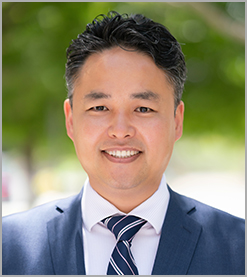주성필 목사
쉬는 날 이른 아침 아이들을 깨우며 “얘들아, 오늘은 날씨도 좋은데 모처럼 우리 하이킹하고, 다 같이 점심으로 얼큰한 순대국밥 먹으러 가자” 했더니 여지없이 “아빠 조심해! 어디 가서 그러면 꼰대 소리 들어”라고 합니다. 미처 아이들의 스케줄이나 의견을 묻지 못한 채 던진 말이긴 하지만, 예상치 못한 순간에 듣게 된 ‘꼰대’라는 말이 귀에 거슬리고, 기분 또한 썩 좋지 않았습니다. 목회자 모임에서 이런 이야기를 나눴더니 저희 중에 나이가 가장 어린 목사님이 자기는 꼰대라는 말을 들어도 마음이 전혀 불편하지 않다고 했습니다. 처음에는 아직은 젊은 편에 속하니 꼰대라는 말을 들을 일이 없어서 그런가 생각했습니다. 그런데 제 생각과는 달리 그 목사님이 꼰대라는 말이 거슬리지 않는 이유는 나이가 이쯤 되고 이만한 위치와 경험을 가졌다면 자기도 꼰대가 맞기 때문이라고 하였습니다.
꼰대, 사전적으로 본래 학생이나 청소년들이 또래 집단 내에서 ‘아버지나 교사 등 나이 많은 남자’를 가리키는 은어였지만, 최근에는 ‘자기의 구태의연한 사고방식을 타인에게 강요하는 사람’을 지칭하는 뜻으로 더욱 보편적으로 사용됩니다. 아마 이 시대의 어른들이 젊은 세대들에게 고지식한 방식을 고집하고 신뢰받지 못한 탓이라고 할 수 있겠지요. 그런데 흥미로운 것은 꼰대의 어원을 정확히 알 수는 없지만, 번데기의 영남 사투리에서 온 말일 수 있다고 풀이하기도 합니다. 번데기처럼 주름이 자글자글한 늙은이라는 의미에서 꼰데기라고 부르다가 꼰대가 되었다고 하는 것이지요. 우리의 피부가 나이가 들어갈수록 자연스레 탄력은 사라지고 오랜 시간 반복되는 근육운동에 따라 그 자리에 골이 생기고 주름이 잡히듯이, 우리의 생각도 인생의 경험이 쌓이고 반복될수록 유연성은 사라지고 자신이 경험하고 배운 것을 옳다고 생각하는 주름이 잡혀 꼰대가 되어가는 것이겠지요.
세월과 함께 꼰대가 되어 가는 것을 피할 수 없기에 어쩔 수 없는 꼰대라서 죄송하지만, 이왕 꼰대 소리 들을 바엔 제대로 된 꼰대가 될까 합니다. 내 생각을 주장하는 것이 아니라 하나님의 말씀대로 주장할 줄 알고, 내 좁은 시선으로 판단하는 것이 아니라 예수님의 넓은 사랑으로 바라보며, ‘라떼’를 외치며 고집피우기보다 주님 오실 그 때를 생각하며 말씀대로 살다가 생기는 선한 주름을 내 삶에 넉넉히 쌓아가는 그런 꼰대가 되렵니다. 이제 아이들이 꼰대라 해도 기분 좋게 웃을 수 있을 것 같습니다.
Sorry for Being an Old-Folk
Rev. Peter Joo
Early in the morning on a restful day, I woke my kids up and said, “Hey kids, it’s a beautiful morning. Let’s go hiking and then have spicy blood sausage soup for lunch”. My kid replied, “Dad, you need to be careful! If you say things like that elsewhere, they will call you an old-folk.” I know I told them without checking their schedules or asking for their opinions. However, when I heard the word ‘old-folk’, it sounded harsh. It did not make me feel good. During our church staff meeting, I shared my story with other pastors. One of the younger pastors said that he wasn’t a bit uncomfortable being called old-folk. Initially I thought maybe he felt that way because he is young and hadn’t been called old-folk before. However, unlike what I had thought, he said it was because when we reach this age, position and experience, he knows that he is an old-folk. Therefore, it’s not uncomfortable to hear that to him.
In dictionary, the word old-folk is defined as a jargon used by students and teens to refer to ‘dads or teachers or older men’. But recently, this word is often used to refer to old-fashioned people who force their ways of thinking on others. Perhaps this is due to adults of this generation who stubbornly insist on their own ways to our younger generation. What’s interesting is that, although we may not know the accurate origin of this word, some even translate it as southern(Young Nam) dialect for the word pupa. It’s like an old person with creases that reminds you of pupa(ppundeggi). The word ppundeggi eventually became kkonde(oldfolk). Our skin naturally loses elasticity as we get old. With repetitive muscle movements over a long time, we eventually form creases on our faces. As we build life experiences and with repetitiveness, we lose our flexibility with our thinking. We think that what we have learned and experienced is correct, thus forming more creases. We become old-folks.
My apologies for becoming an old-folk, although we cannot avoid becoming old-folks with time. If I am going to be called an old-folk, I want to become a cool old-folk. Instead of being stubborn with my own thoughts, I want to be stubborn with God’s Word. Instead of judging from my own narrow view, I want to see with Jesus’ all-embracing love. Instead of shouting ‘when I was…’ and being stubborn about it, I want to embrace His return and live by His Word, building up good creases as an old-folk. Even if my kids call me old-folk, I can smile now and feel good about it.

